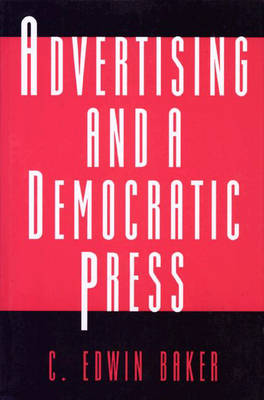While often criticized for encouraging a materialistic consumer culture, advertising is commonly assumed to be the financial cornerstone of the inexpensive American newspaper and an essential element for the efficient transmission of information in a democratic society. This text, however, argues that print advertising seriously distorts the flow of news by creating a powerfully corrupting incentive: the more newspapers depend financially on advertising, the more they favour the interests of advertisers over those of readers. Often consumers are willing to pay more for the smaller-circulation competitive paper that strongly presents their favoured editorial perspective. But advertising induces newspapers to compete for a maximum audience with blandly "objective" information, resulting in reduced differentiation among papers and the consequent eventual collapse of competition among dailies. The advertising-induced rise of objectivity and the decline of partisanship have also, this study argues, contributed to the decline in political culture and participation seen throughout this century.
The author proposes a variety of regulatory responses to promote the press's freedom from advertisers' censorship. In clarifying this murky area of US constitutional law, he shows that these reforms are entirely consistent with the best understanding of the First Amendment guarantee of freedom of the press.
- ISBN10 0691032580
- ISBN13 9780691032580
- Publish Date 2 January 1994
- Publish Status Out of Print
- Out of Print 8 October 2001
- Publish Country US
- Imprint Princeton University Press
- Format Hardcover
- Pages 214
- Language English
- URL https://press.princeton.edu/titles/5368.html
